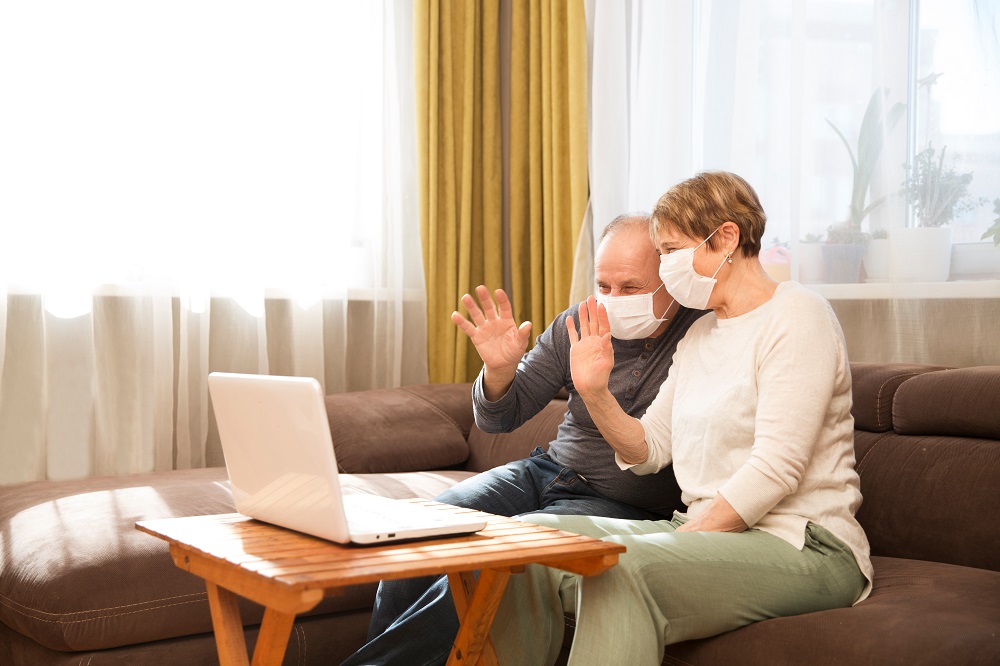Effective Communication Tips While Staying at Home
 Someone getting on your nerves? Living with too much togetherness? Families are facing more communication challenges with COVID-19 restrictions. Perhaps you have a grandparent living at home along with your teenage and younger aged children. Or, siblings are fighting with each other because their schedules are now the same. When living for long periods of time confined to one space, emotions can run high.
Someone getting on your nerves? Living with too much togetherness? Families are facing more communication challenges with COVID-19 restrictions. Perhaps you have a grandparent living at home along with your teenage and younger aged children. Or, siblings are fighting with each other because their schedules are now the same. When living for long periods of time confined to one space, emotions can run high.
Add in concerns about infection and the uncertainty of when life will normalize and you have a recipe for mis-communication and tense moments.
Long periods of time confined to the home albeit for our protection–to be safe and healthy—can bring on feelings of boredom, isolation, resistance and reaction.
What can YOU do to bring harmony to the home and to each other?
- Talk with your children. Then listen. Teenagers, in particular, may feel the loss of independence and connection with their peers. Acknowledge their feelings and validate their personal experience.Active listening is the process of being fully present to hear, understand and respond to what is being said. You might try asking some clarifying questions to confirm what you are hearing. Be open to hear and not react. Be attentive to listen. “Do I understand what you are saying?”
- Disagreements will happen–and may be related to outside influences such as money, schooling, food, shelter as well as interpersonal issues.In their seminal book Getting to Yes, authors Roger Fisher and William Ury outline their theory of principled negotiation. A key principle is to Separate the people from the problem. Choose not to attack each other, focus on the problem. Identify the main issue and then suggest proposals to resolve it. Do not make statements or judgments about the person or their motivations. You can offer an “ask” not a demand.
- Have you reached an impasse? Nothing works. No one is talking. There’s only tension. Communication has broken down. It is time to Change the dynamic. Recognize that everyone is dealing with the same situation–staying inside to work or be safe–however, each of you may be responding differently. If the conflict in your home cannot be resolved, then ease its influence. Do something different: take a walk, play a game instead of reading a book, cook a meal, talk to a friend. Or, consider a new approach and change gears: tell a joke, do something creative, bring in a third person to help.That third person could be a mediator, a neutral third person whose expertise is helping facilitate the communication to reach an agreement. Other tools for breaking an impasse include having each family member express what he or she is grateful for during this time, to meditate each day, to be open to listen to everyone’s fears and do some deep breathing exercises and focus on the moment. Stay positive and flexible.
Adjusting to a New Normal
As states open up and businesses begin to re-open, society will adapt to a new normal. As families (parents, children, siblings, caretakers, elders), teachers, business owners and employees return to the workforce, conversations will change.
What are some ways to adapt to the new normal?
- Be mindful of your environment. Mindfulness is the act of being present and aware in the moment. It is focused on the present. Observe what is happening around you and be open to what you see, be caring and non-judgmental.
- Watch your reaction. First, reflect on what you are hearing. If your immediate reaction is negative, ask yourself why? Consider external and internal stressors (e.g., a past experience, current news story, not feeling well, sleep deprived). Second, choose an appropriate and positive response. Acknowledge and respond: I am feeling stressed right now and need a few minutes to calm myself down/take a walk.
- Establish a daily deep breathing and meditation routine. You can rewire your brain and lessen your anxiety through breathing exercises. With your body stretched on the floor (no pillow) or sitting at your desk with your feet on the floor and your palms up on your thighs, breathe through your mouth for 5 seconds, hold for another 5 seconds and breathe out. This will help relax you.
- Keep a Gratitude Journal. Every day focus on one positive thought, behavior or action. Write it down. By keeping a daily journal, you will feel calmer and experience less stress. You may feel more connected and accomplished. And, in a week or so, reflect on what you have written to be inspired to continue the practice.
